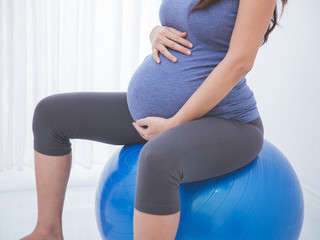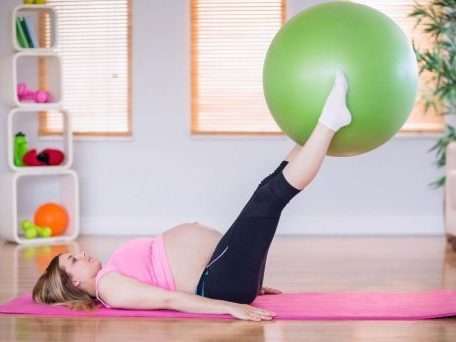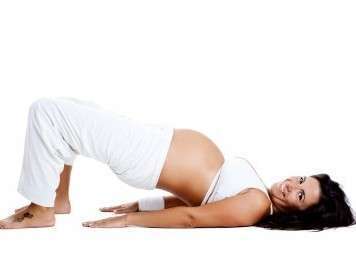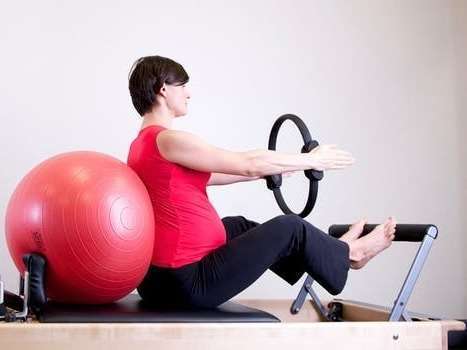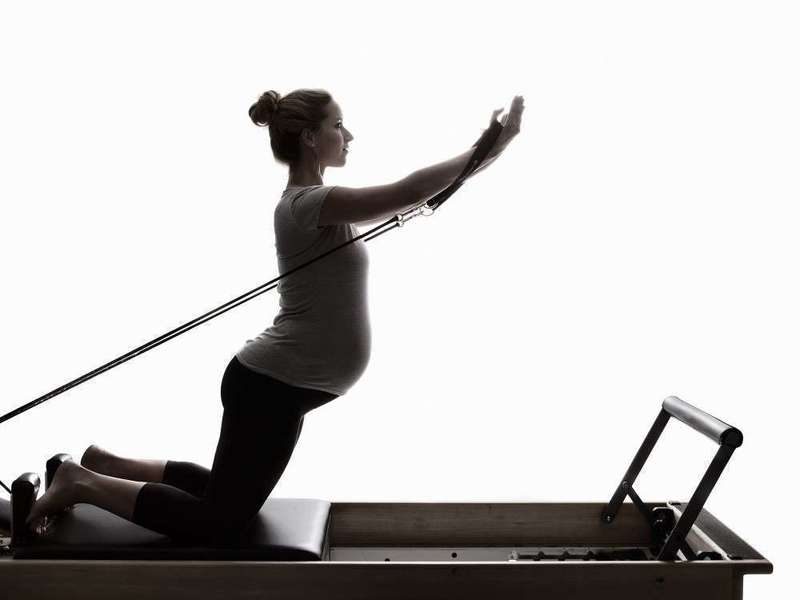Pilates for Pregnant Women in Béziers
Pilates for Pregnant Women
(Prenatal and Postnatal)
PRENATAL PILATES
Pilates for pregnant women is a discipline recommended by gynaecologists. Prenatal Pilates works all the muscles, particularly those of the pelvic floor (perineum) which are under great pressure during pregnancy and which can collapse into the pelvis under the weight of the baby. Strengthening these muscles will allow to be better prepared for childbirth, to prevent the risk of urinary incontinence, to tone the muscles of the vagina and thus to facilitate the resumption of sexual relations after the birth of the child,
2 to 3 times a week, the mother-to-be will tone her body (deep muscle strengthening) while focusing on breathing and relaxing. I would like to point out that a good Pilates session should make the person yawn so that she can benefit from all the advantages of Pilates.
You need to let go and focus on your breathing, the first principle of Pilates. Belly support and prevention of back pain due to the weight of the belly.
The Swiss Ball is the ideal equipment for expectant mothers. It relaxes the muscles of the pelvis, the back and the perineum. A real connection between the mother-to-be and her child.
The centre of gravity of the mother-to-be changes over the course of the months: it is therefore necessary for her to constantly readjust the alignment of her body in search of the right posture.
During pregnancy, it is also important to work the deep abdominal muscles to allow for better recovery after childbirth.
The Pilates method therefore has considerable benefits for the mother-to-be, allowing her to strengthen her abdomen, increase her resistance andher capacity for recovery, while regaining relaxation and energy.
This technique also prevents varicose veins and cramps by improving blood circulation and strengthens the pelvic floor muscles for an easier delivery.
It also has a proven impact on breathing: during pregnancy, the heart rate increases by 10 to 15 beats per minute. Pilates tends to alleviate heart rhythm disorders and contribute to a better internal balance.
N.B.: A medical prescription from the gynecologist is required to practice Pilates.
I will meet your expectations thanks to a specially dedicated programme and with different accessories provided (Swiss Ball, Chair, Reformer) the classes consist of exercises adapted to pregnancy. A Pilates for the mother-to-be in harmony with her baby.
Pilates Mat and Pilates Machine (Chair and Reformer) is a very gentle discipline,recommended during pregnancy to relieve minor aches and pains, relax and gain flexibility in preparation for childbirth. To be practiced until the last trimester.
Thanks to Pilates breathing (chest and rib breathing), mothers-to-be are less breathless in their daily lives and will be able to control their breathing better on the day of their delivery.
During pregnancy, as the belly grows, the centre of gravity shifts and there is a tendency to lean forward, with the risk of over arching the back. Pilates helps you to learn how to hold yourself correctly and maintain this good posture in your daily life and to be in good shape to carry out your daily tasks.
Pilates is a good compromise for maintaining physical activity during pregnancy. While this discipline offers many advantages to pregnant women, there are also benefits for the baby. For example, the breathing movements open up the rib cage, allowing the baby to have more room in utero. Stretching, relaxation, breathing... At the end of the session, the mothers-to-be are relaxed and recharged with energy.
Medical advice from your gynaecologist or midwife is necessary. If you are fit, you can practice during the whole pregnancy.


POSTNATAL PILATES
You are a young mother wishing to strengthen your perineum and deep abdominal muscles with controlled, fluid and precise movements .
It is essential to start by gently strengthening the pelvic floor and deep abdominal muscles.
Postnatal Pilates is a gentle workout that will help new mothers regain their muscle tone, restoring the abdomen to its supportive role, helping the woman to regain her figure in a way that respects the body and avoids injury.
In Pilates, we work to rebuild ourselves more quickly afterwards. It is not uncommon in Pilates classes to see young mothers, who gave birth barely two months ago, showing off a firm abdominal belt and a flat stomach... The contraction and tightening exercises with a ball help to tone the perineum, which becomes slack during pregnancy.
We have created this course specifically for you. On the floor (Pilates Mat) and on machines (Reformer and chair).
A special moment to allow you to find yourself after baby, to relax and to get back in shape while respecting your body.
NB: this course is not a substitute for perineal rehabilitation, it complements it and can be done in parallel or afterwards. Postnatal Pilates can be practiced 6 weeks (vaginal delivery) and 8 weeks (caesarean delivery) after the birth.
It is important after childbirth to get back to physical activity. Pilates is the method that allows you to return to physical activity in a gentle way.
Sport can be resumed after childbirth, in order to regain one's figure, tone up and regain self-confidence.
The resumption of the Pilates activity can only be done with the agreement of your doctor (medical certificate) and after the following periods:
- Vaginal delivery: after 6 weeks to start perineal rehabilitation after delivery and 8 weeks for abdominal rehabilitation.
- Caesarean delivery: after 10 weeks
In Postnatal, a personalised programme will be focused and directed towards exercises that allow :
- Working on your figure
- Perineal work
- Strengthening of postural muscles
- Mobilisation of the spine
- Stimulation of blood circulation
- Freedom of movement of the shoulders and rib cage (as a result of carrying the child)
- Strengthening the abdominal muscles
- Restoration of symmetries in the pelvis
- Toning your whole body

